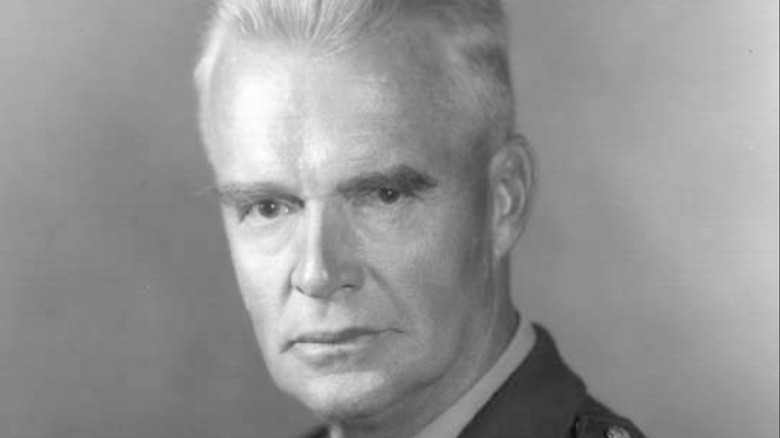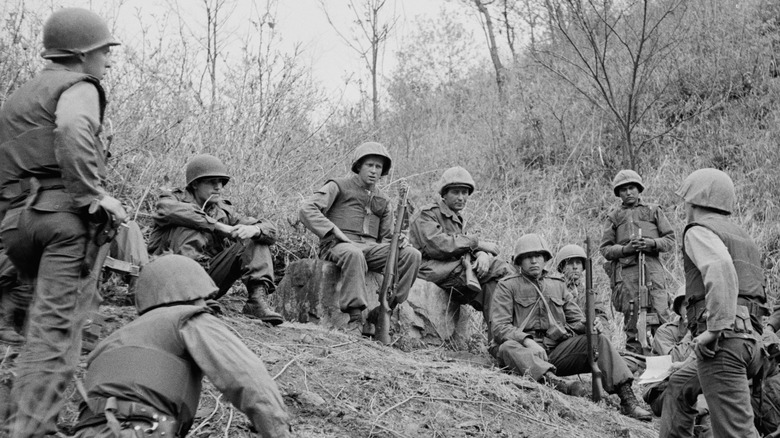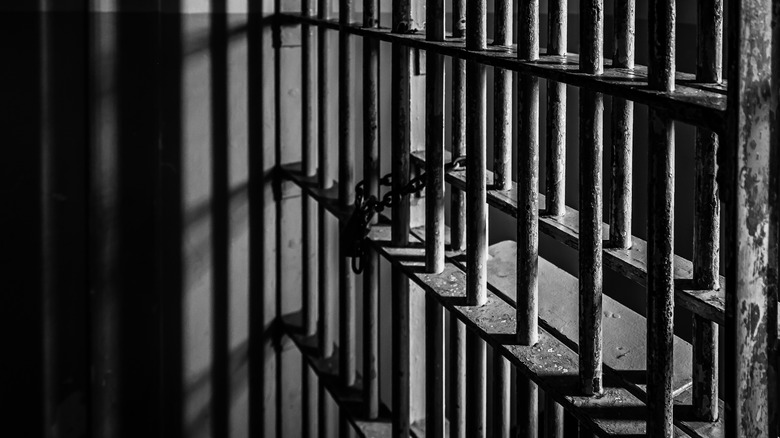The American General Who Was Captured By North Koreans In The Korean War
The Korean War, which took place between 1950-1953, has often been described as America's "forgotten" war, according to the Korean War Legacy Project. Stories of the valor of the men and women who fought in the Cold War-era crusade against the expansion of communism wound up lost in the shuffle, as the generation-shaping World War II had just wrapped up a few short years earlier, and another generation-shaping conflict, the Vietnam War, would ravage a few years later.
Also lost in the conversation is the fact that during this conflict, US Major General William F. Dean was taken captive by the enemy. And while enlisted men and officers are often captured while wars rage, it is almost unheard of for such a high-ranking officer to become a prisoner of war. In fact, as Mental Floss described it, if it were to happen today, it would be comparable in scope to General Petraeus, who commanded US forces in Iraq, being taken prisoner by the Iraqis — it was, and is, that unlikely.
This is the true story of the American general who was captured by North Koreans in the Korean War.
William F. Dean got separated from his unit and then delivered to the enemy
According to the book "The U.S. Army and the Korean War: South to the Naktong, North to the Yalu," by Roy. E. Appleman, on July 12, 1950, Dean was commanding the 34th Infantry in Taejon, when he was forced to abandon the city. During the chaotic retreat, Dean's Jeep made a wrong turn, and he was separated from the rest of his men.
While attempting to gather water for a wounded man, Dean fell down a steep slope and was knocked unconscious, in the process suffering a laceration to his head, a broken shoulder, and minor bruises. Injured, he would spend the next 36 days in the Korean wilderness, without food or medical care, while he tried to reach safety. In the process, he lost 80 pounds.
He was eventually found by two South Koreans who pretended to lead him to safety, only to be delivered to North Korean captors, who took him into custody. Dean tried to fight back, but he was too weakened by starvation to put up much of a battle.
Dean was treated reasonably well by his captors
Prisoners of War (POWs) aren't always treated well by their enemies, but Dean largely escaped that fate while in North Korean custody. According to Life Magazine, he was given food and medical treatment, although because the food was poorly prepared, he got sick with diarrhea and dysentery, ailments that would afflict him for much of his captivity.
He was "interrogated," which, when discussing war, is often used as a euphemism for "tortured." In fact, though the North Koreans did threaten him with unspecified harm if he didn't "cooperate," he was never actually tortured by his captors. In fact, according to a companion Life Magazine report, though he was kept separated from the rest of the American POWs, he was allowed to exercise regularly, and passed the time playing chess with his captors.
However, the specter of possible torture loomed over his entire captivity, and his interrogators hinted that it remained a possibility. General Dean actually attempted suicide while a captive, out of fear that he break under torture and reveal information to his captors. He also made several unsuccessful escape attempts.
During his captivity, General Dean was awarded the Medal of Honor. He was freed in 1953 when the armistice that ended hostilities was signed. He returned home to the United States and died in 1981 at the age of 82, according to Military Museum.


